Damon Runyon Cancer Research Foundation Grants Nearly $3.5 million in Fellowship Awards
Grants totaling nearly $3.5 million give early career investigators independence to pursue brave and bold cancer research.
Fifteen brilliant scientists from across the country were named Damon Runyon Fellows. The recipients of this prestigious, four-year award are outstanding postdoctoral scientists conducting basic and translational cancer research in the laboratories of leading senior investigators. The Fellowship encourages the nation's most promising young scientists to pursue careers in cancer research by providing them with independent funding ($231,000 total) to work on creative, high-risk projects.
"We are thrilled to be funding these innovative, young scientists with the brilliance and passion to push boundaries and break rules. They are committed to understanding the fundamental processes driving cancer, which may ultimately lead to new therapeutic approaches for patients," said Yung S. Lie, PhD, President and CEO of the Damon Runyon Cancer Research Foundation.
Spring 2019 Damon Runyon Fellows:
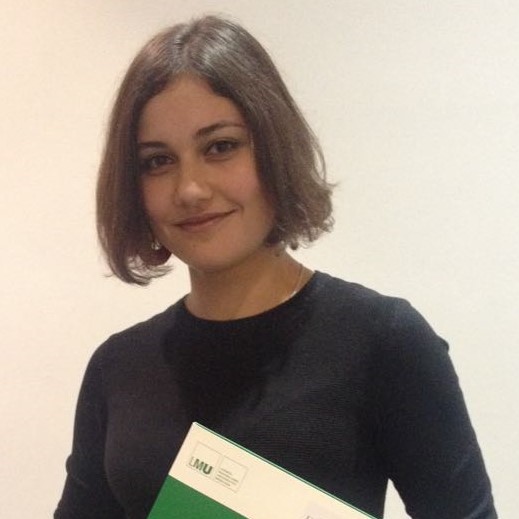 Liudmila Andreeva, PhD, with her sponsor Hao Wu, PhD, at Boston Children's Hospital, Boston, investigates the role of a molecule called NLRP3 in the assembly of inflammasommes, multiprotein complexes that form in response to cellular infection or stress. NLRP3 acts as a sensor inside the cell that detects danger signals and activates the inflammasome complex to trigger inflammation and cell death. Dr. Andreeva aims to uncover the step-by-step mechanism of NLRP3 activation and regulation to understand how to prevent "false alarms" that cause disease. This research has the potential to aid the development of drugs that specifically turn off the NLRP3 inflammasome and treat a variety of inflammatory disorders, from osteoarthritis to Alzheimer's disease and cancer.
Liudmila Andreeva, PhD, with her sponsor Hao Wu, PhD, at Boston Children's Hospital, Boston, investigates the role of a molecule called NLRP3 in the assembly of inflammasommes, multiprotein complexes that form in response to cellular infection or stress. NLRP3 acts as a sensor inside the cell that detects danger signals and activates the inflammasome complex to trigger inflammation and cell death. Dr. Andreeva aims to uncover the step-by-step mechanism of NLRP3 activation and regulation to understand how to prevent "false alarms" that cause disease. This research has the potential to aid the development of drugs that specifically turn off the NLRP3 inflammasome and treat a variety of inflammatory disorders, from osteoarthritis to Alzheimer's disease and cancer.
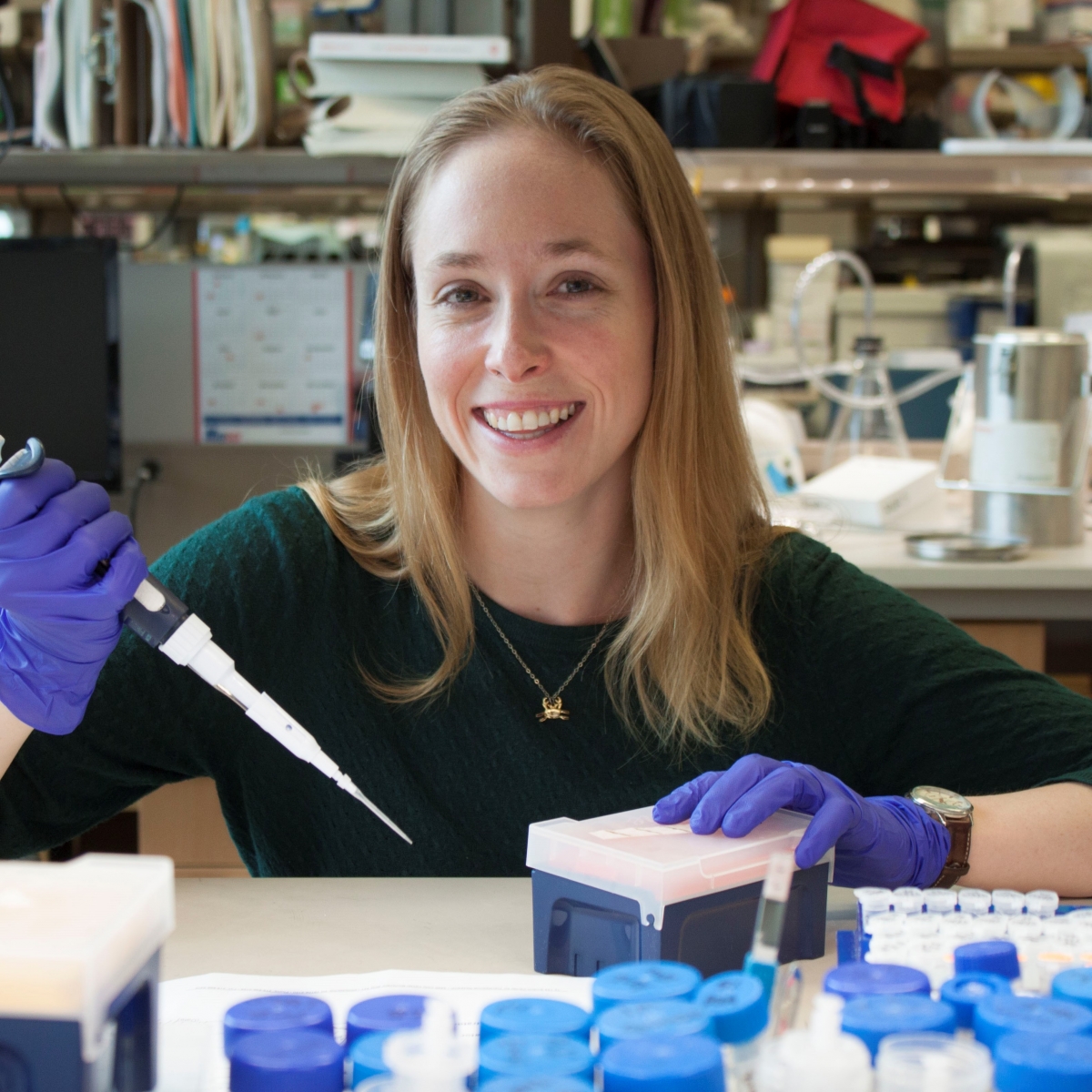 Caroline Bartman, PhD [Mark Foundation for Cancer Research Fellow], with her sponsor Joshua Rabinowitz, MD, PhD, at Princeton University, Princeton, studies the unique nutritional requirements of cancer cells compared to healthy tissues. Dr. Bartman will use mass spectrometry measurements of labeled nutrients and computational modeling to quantify metabolic fluctuations in both pancreatic cancer cells and healthy organs in mice. Since altered metabolism is a hallmark of cancer cells, systematically mapping these metabolic changes may guide drug development to rationally target cancer while sparing healthy cells.
Caroline Bartman, PhD [Mark Foundation for Cancer Research Fellow], with her sponsor Joshua Rabinowitz, MD, PhD, at Princeton University, Princeton, studies the unique nutritional requirements of cancer cells compared to healthy tissues. Dr. Bartman will use mass spectrometry measurements of labeled nutrients and computational modeling to quantify metabolic fluctuations in both pancreatic cancer cells and healthy organs in mice. Since altered metabolism is a hallmark of cancer cells, systematically mapping these metabolic changes may guide drug development to rationally target cancer while sparing healthy cells.
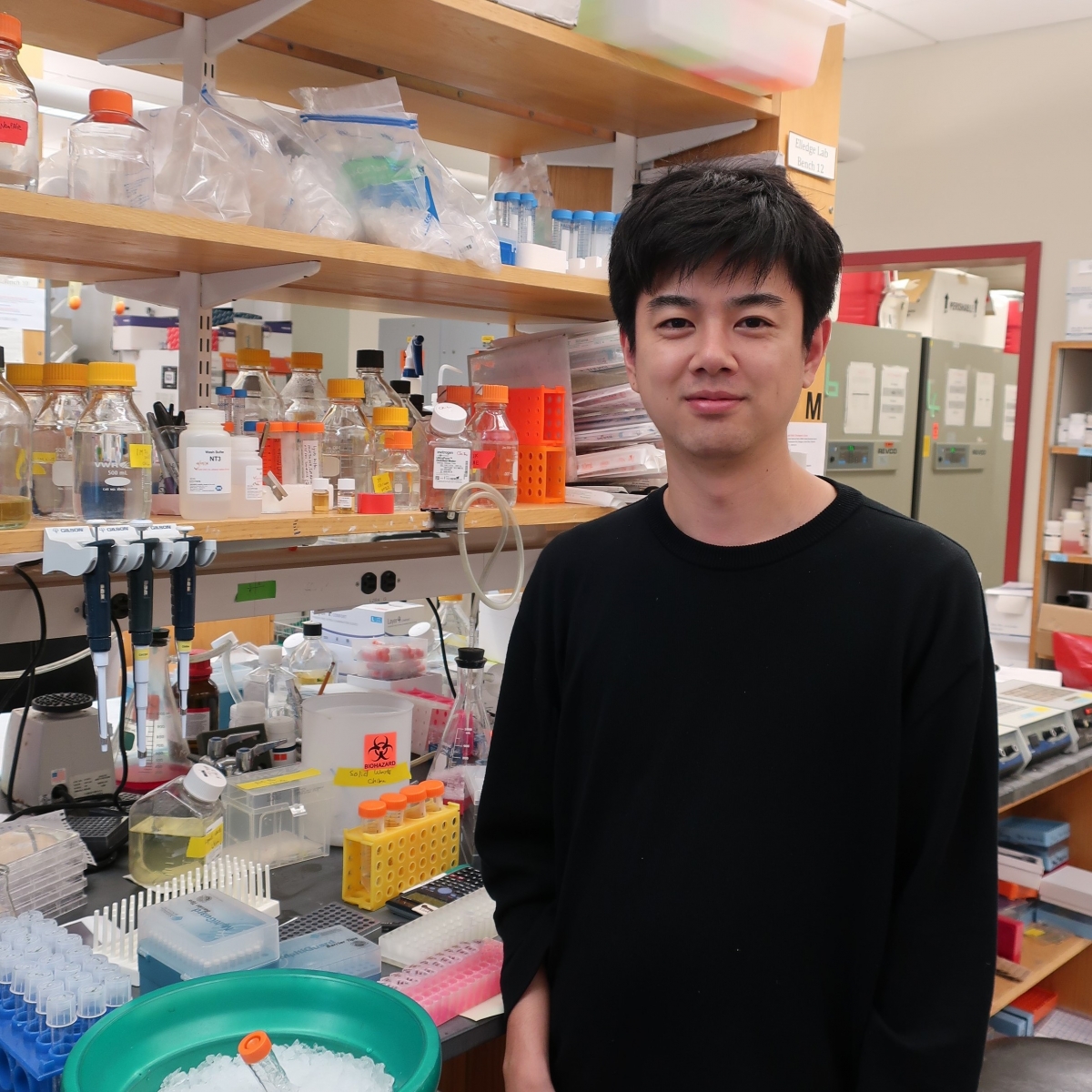 Kunitoshi Chiba, PhD, with his sponsor Stephen Elledge, PhD, at Brigham and Women's Hospital, Boston, investigates how cancer cells evade a patient's immune system. Though checkpoint blockade therapies have expanded the options for cancer patients, only a fraction of those treated actually benefit due to the emergence of immune resistance. Dr. Chiba will use molecular and genetic approaches to dissect the ways that cancer-associated mutations alter the tumor environment to avoid immune surveillance. The aim of this research is to improve the efficacy of cancer immunotherapy so many more patients will benefit.
Kunitoshi Chiba, PhD, with his sponsor Stephen Elledge, PhD, at Brigham and Women's Hospital, Boston, investigates how cancer cells evade a patient's immune system. Though checkpoint blockade therapies have expanded the options for cancer patients, only a fraction of those treated actually benefit due to the emergence of immune resistance. Dr. Chiba will use molecular and genetic approaches to dissect the ways that cancer-associated mutations alter the tumor environment to avoid immune surveillance. The aim of this research is to improve the efficacy of cancer immunotherapy so many more patients will benefit.
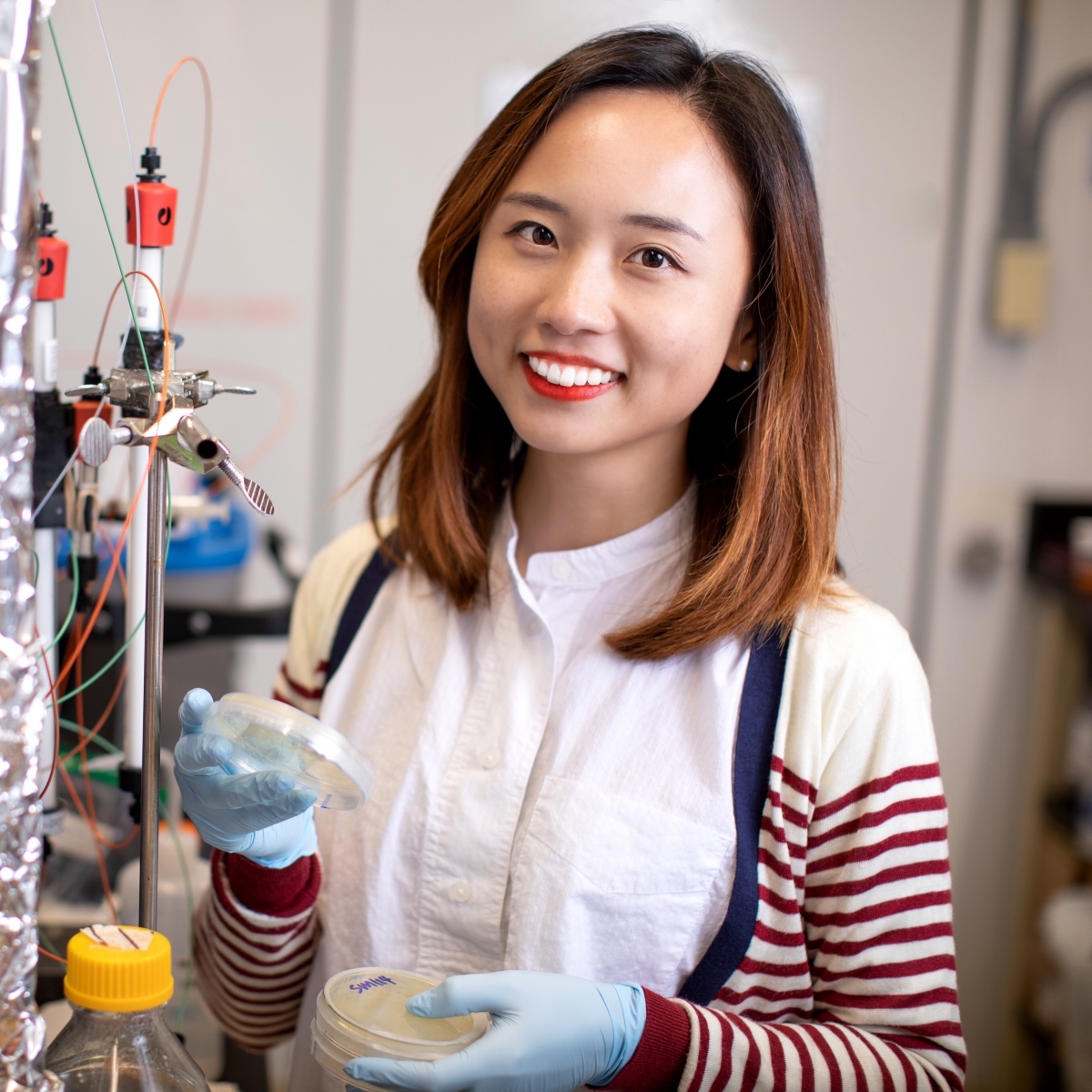 Hokyung Kay Chung, PhD, with her sponsor Susan Kaech, PhD, at the Salk Institute, La Jolla, is developing a new engineering approach to create intelligent and tenacious T cells with durable anti-tumor activity. Her aim is to create enhanced T cells that will infiltrate tumors, kill cancer cells, and persist long-term to prevent recurrence. Dr. Chung will use cutting-edge, multi-disciplinary approaches, including bioinformatics, protein and genetic engineering, and tumor immunology, to design a synthetic T cell differentiation pathway. This T cell reprogramming platform has the potential to transform cellular immunotherapies (such as CAR T) into "smarter" cells that target cancer with persistence and enhanced potency.
Hokyung Kay Chung, PhD, with her sponsor Susan Kaech, PhD, at the Salk Institute, La Jolla, is developing a new engineering approach to create intelligent and tenacious T cells with durable anti-tumor activity. Her aim is to create enhanced T cells that will infiltrate tumors, kill cancer cells, and persist long-term to prevent recurrence. Dr. Chung will use cutting-edge, multi-disciplinary approaches, including bioinformatics, protein and genetic engineering, and tumor immunology, to design a synthetic T cell differentiation pathway. This T cell reprogramming platform has the potential to transform cellular immunotherapies (such as CAR T) into "smarter" cells that target cancer with persistence and enhanced potency.
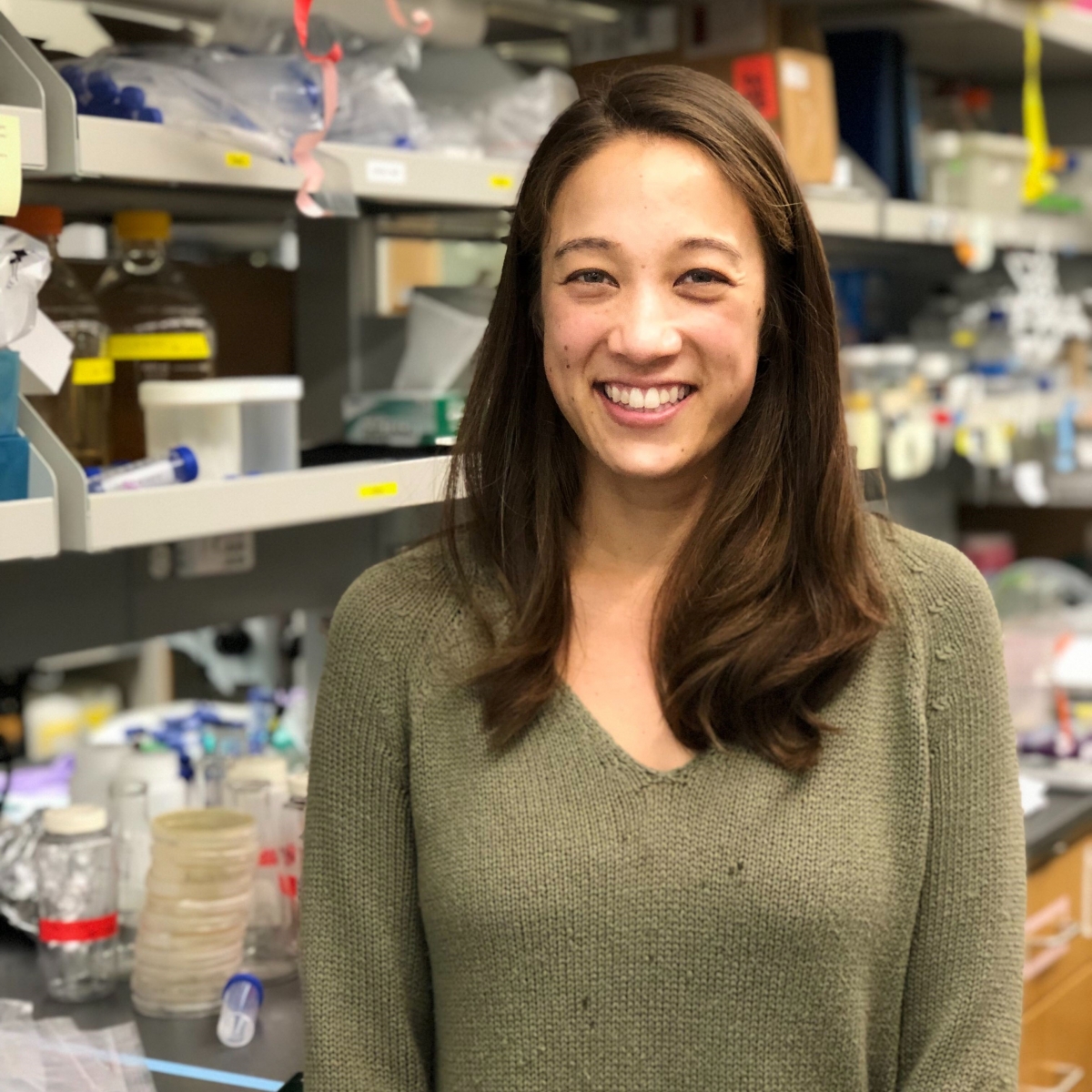 Christina L. Hueschen, PhD, with her sponsor Alex Dunn, PhD, at Stanford University, Stanford, studies the motility of Apicomplexan parasites, which cause malaria, foodborne illness (toxoplasmosis) and infections in immunocompromised cancer patients. These parasites move through the human body using a mechanism called "gliding" to migrate over host cells and through the surrounding extracellular matrix. Dr. Hueschen's goal is to understand how molecules inside the parasite are organized, coordinated and regulated to produce forces that direct movement. This research has the potential to aid in the development of therapies to prevent opportunistic infections.
Christina L. Hueschen, PhD, with her sponsor Alex Dunn, PhD, at Stanford University, Stanford, studies the motility of Apicomplexan parasites, which cause malaria, foodborne illness (toxoplasmosis) and infections in immunocompromised cancer patients. These parasites move through the human body using a mechanism called "gliding" to migrate over host cells and through the surrounding extracellular matrix. Dr. Hueschen's goal is to understand how molecules inside the parasite are organized, coordinated and regulated to produce forces that direct movement. This research has the potential to aid in the development of therapies to prevent opportunistic infections.
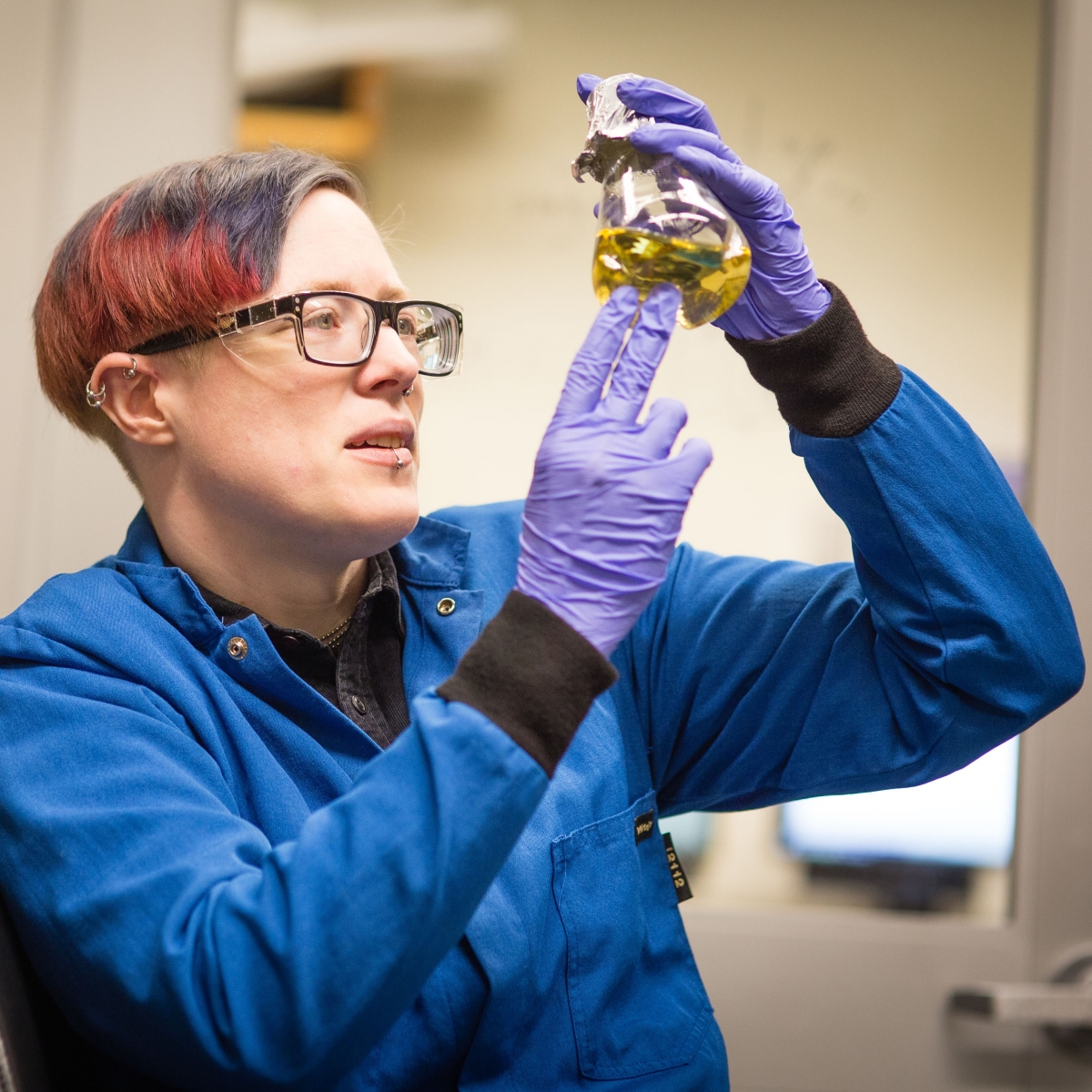 Grace E. Kenney, PhD [Merck Fellow], with her mentor Emily P. Balskus, PhD, at Harvard University, Cambridge, studies how microbes make natural products, a major source of new chemotherapy drug candidates. Dr. Kenney is identifying the chemical reactions used by microbes in nature to synthesize compounds that have the potential to act as chemotherapeutic drugs. Once the biological synthesis of these compounds is understood, this information can be used to identify, investigate, and ultimately re-engineer new families of natural products that can be evaluated for their potential as novel drugs.
Grace E. Kenney, PhD [Merck Fellow], with her mentor Emily P. Balskus, PhD, at Harvard University, Cambridge, studies how microbes make natural products, a major source of new chemotherapy drug candidates. Dr. Kenney is identifying the chemical reactions used by microbes in nature to synthesize compounds that have the potential to act as chemotherapeutic drugs. Once the biological synthesis of these compounds is understood, this information can be used to identify, investigate, and ultimately re-engineer new families of natural products that can be evaluated for their potential as novel drugs.
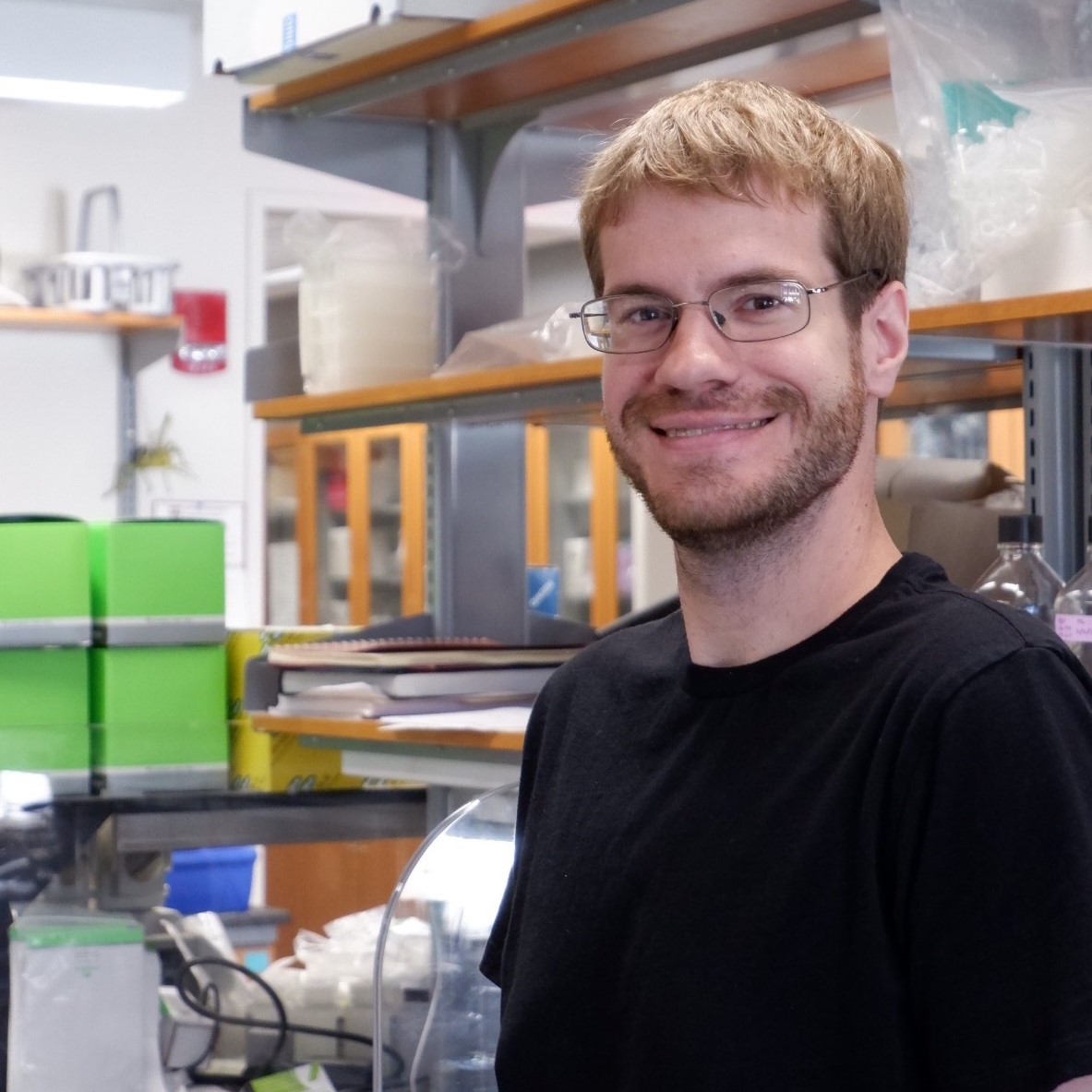 Thomas R. LaBar, PhD, with his sponsor Andrew W. Murray, PhD, at Harvard University, Cambridge, is using budding yeast and computational modeling to study the basic processes that determine how cancer cell populations evolve in response their environment. Dr. LaBar aims to understand how the number of cells in a tumor may drive the evolution of cancer cells based on their supply of new mutations. His research has the potential to shed light on specific mutations that appear in certain cancers, alterations that allow cancer cell populations to grow abnormally, and strategies that will help predict the evolution of cancer cell populations and patient prognosis.
Thomas R. LaBar, PhD, with his sponsor Andrew W. Murray, PhD, at Harvard University, Cambridge, is using budding yeast and computational modeling to study the basic processes that determine how cancer cell populations evolve in response their environment. Dr. LaBar aims to understand how the number of cells in a tumor may drive the evolution of cancer cells based on their supply of new mutations. His research has the potential to shed light on specific mutations that appear in certain cancers, alterations that allow cancer cell populations to grow abnormally, and strategies that will help predict the evolution of cancer cell populations and patient prognosis.
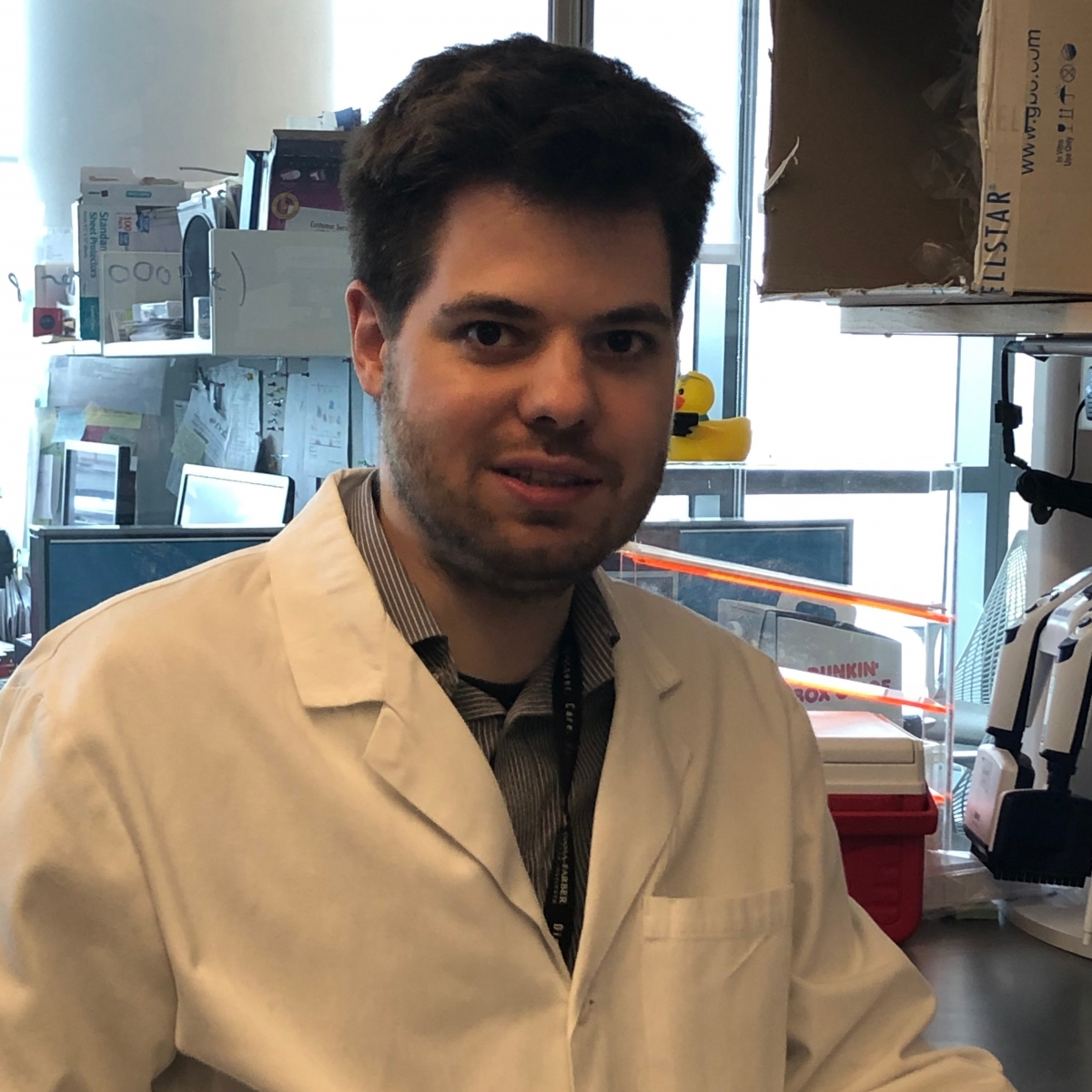 Jasper E. Neggers, PhD, with his sponsors Andrew J. Aguirre, MD, PhD, and Todd R. Golub, MD, at the Dana-Farber Cancer Institute, Boston, is focusing on validating a new drug target for pancreatic cancer. Using large-scale genetic screening, Dr. Neggers discovered that a subset of cancers, including over 50% of pancreatic cancers, selectively require the VPS4A gene to proliferate and grow. When VPS4A is turned off, the cells stop dividing and die. He will study this vulnerability in clinically relevant patient-derived and mouse models of pancreatic cancer to understand how it functions. His research may help confirm whether this gene should be pursued as a significant drug target.
Jasper E. Neggers, PhD, with his sponsors Andrew J. Aguirre, MD, PhD, and Todd R. Golub, MD, at the Dana-Farber Cancer Institute, Boston, is focusing on validating a new drug target for pancreatic cancer. Using large-scale genetic screening, Dr. Neggers discovered that a subset of cancers, including over 50% of pancreatic cancers, selectively require the VPS4A gene to proliferate and grow. When VPS4A is turned off, the cells stop dividing and die. He will study this vulnerability in clinically relevant patient-derived and mouse models of pancreatic cancer to understand how it functions. His research may help confirm whether this gene should be pursued as a significant drug target.
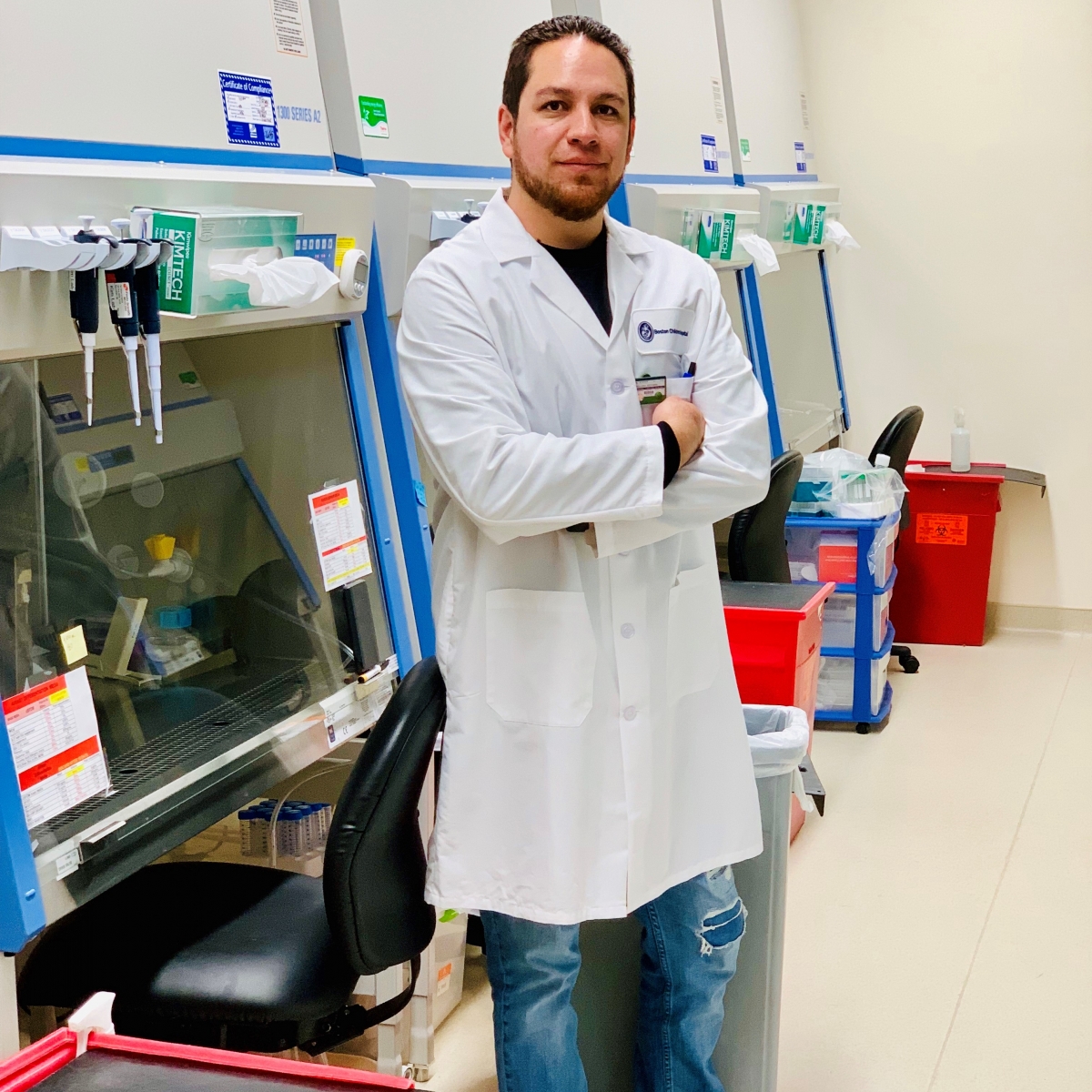 Esteban Orellana Vinueza, PhD, with his sponsor Richard I. Gregory, PhD, at Boston Children's Hospital, Boston, is investigating whether changes that modify the shape, stability and function of transfer RNAs (tRNAs) play a role in the development of cancer. The tRNA molecules are involved in the process that translates messenger RNA into a protein. Dr. Orellana Vinueza focuses on a tRNA methyltransferase complex that malfunctions in glioblastoma and liposarcoma. He will assess how alterations in the activity of this enzyme affect global patterns of methylation in normal and human cancer cells. Methylation is the process that controls the timing and amount of proteins that are produced in cells. Understanding how this process breaks down may help decipher the mechanisms that drive cancer and guide the development of new treatments.
Esteban Orellana Vinueza, PhD, with his sponsor Richard I. Gregory, PhD, at Boston Children's Hospital, Boston, is investigating whether changes that modify the shape, stability and function of transfer RNAs (tRNAs) play a role in the development of cancer. The tRNA molecules are involved in the process that translates messenger RNA into a protein. Dr. Orellana Vinueza focuses on a tRNA methyltransferase complex that malfunctions in glioblastoma and liposarcoma. He will assess how alterations in the activity of this enzyme affect global patterns of methylation in normal and human cancer cells. Methylation is the process that controls the timing and amount of proteins that are produced in cells. Understanding how this process breaks down may help decipher the mechanisms that drive cancer and guide the development of new treatments.
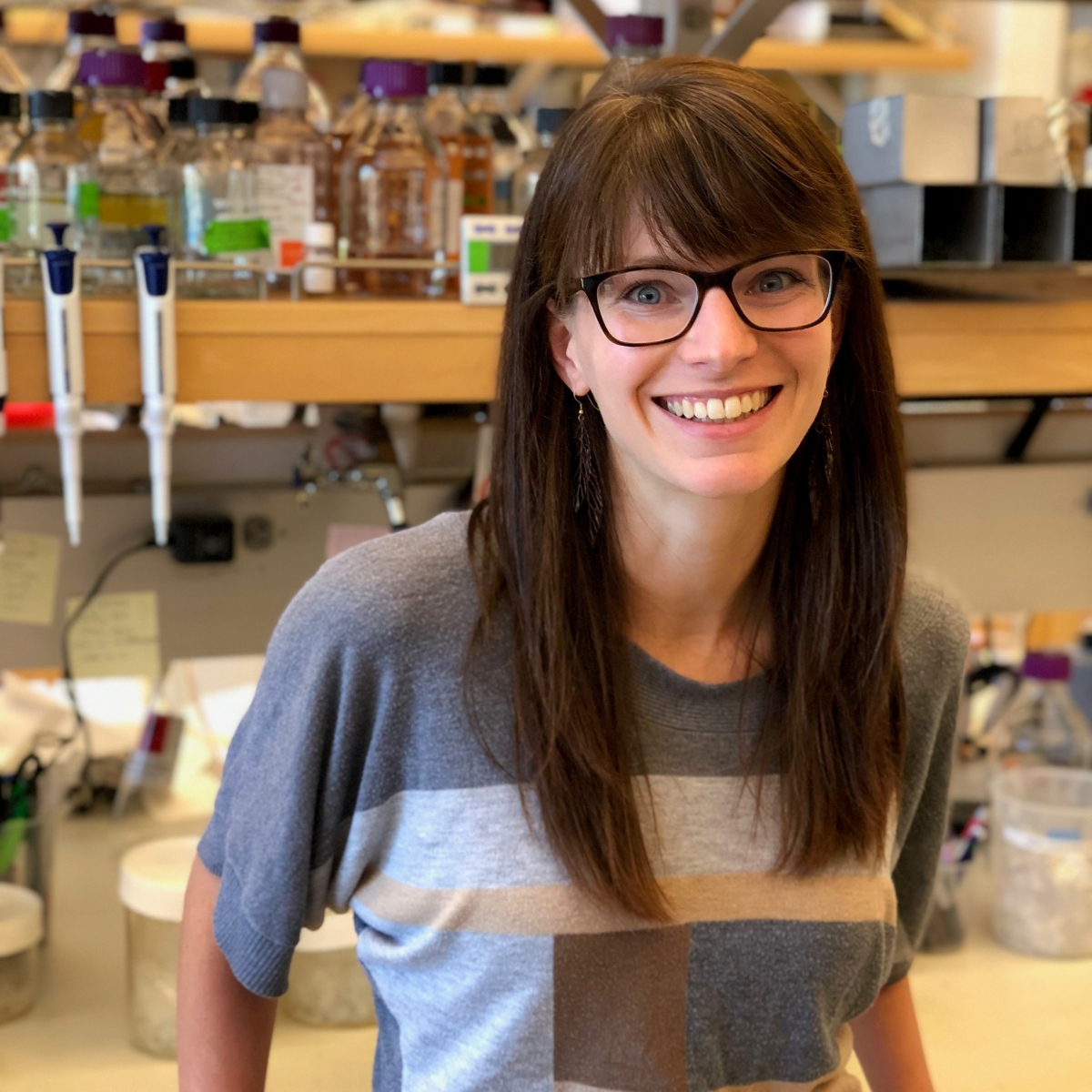 Janice M. Reimer, PhD [Merck Fellow], with her sponsor Andres Leschziner, PhD, at the University of California, San Diego, studies the molecular mechanisms that regulate the SWI/SNF family of chromatin remodelers, which is mutated in over 20% of cancers. Condensed DNA is stored within the nucleus as chromatin, which cannot be accessed for transcription to proteins. Chromatin remodelers are complex protein machines that alter DNA accessibility. Gain-of-function mutations lead to functional complexes with abnormal activities and are potential therapeutic targets. Dr. Reimer will use cryo-electron microscopy to understand how oncogenic mutations may disrupt the normal regulation and behavior of SWI/SNF remodelers.
Janice M. Reimer, PhD [Merck Fellow], with her sponsor Andres Leschziner, PhD, at the University of California, San Diego, studies the molecular mechanisms that regulate the SWI/SNF family of chromatin remodelers, which is mutated in over 20% of cancers. Condensed DNA is stored within the nucleus as chromatin, which cannot be accessed for transcription to proteins. Chromatin remodelers are complex protein machines that alter DNA accessibility. Gain-of-function mutations lead to functional complexes with abnormal activities and are potential therapeutic targets. Dr. Reimer will use cryo-electron microscopy to understand how oncogenic mutations may disrupt the normal regulation and behavior of SWI/SNF remodelers.
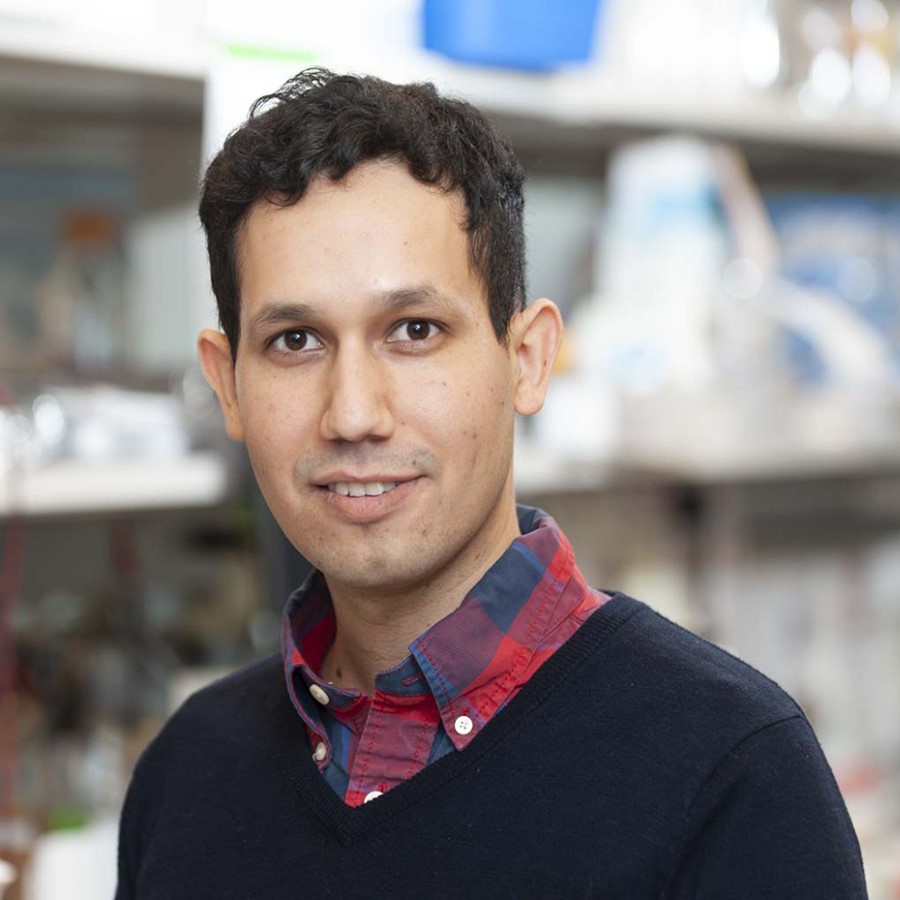 Jose Reyes, PhD, with his mentors Scott Lowe, PhD, and Dana Pe'er, PhD, at Memorial Sloan Kettering, New York, focuses on Complex-Karyotype Acute Myeloid Leukemia (CK-AML), an aggressive form of AML with poor prognosis and limited treatment options. Dr. Reyes is using mouse models and single-cell technologies to follow the parallel evolution of cancer cells from the time of disease onset until its terminal stage. This approach may forecast the evolution of heterogeneous cancer cell populations with the goal of identifying targets that are involved with a cancer cell's ability to adapt to and recur after treatment.
Jose Reyes, PhD, with his mentors Scott Lowe, PhD, and Dana Pe'er, PhD, at Memorial Sloan Kettering, New York, focuses on Complex-Karyotype Acute Myeloid Leukemia (CK-AML), an aggressive form of AML with poor prognosis and limited treatment options. Dr. Reyes is using mouse models and single-cell technologies to follow the parallel evolution of cancer cells from the time of disease onset until its terminal stage. This approach may forecast the evolution of heterogeneous cancer cell populations with the goal of identifying targets that are involved with a cancer cell's ability to adapt to and recur after treatment.
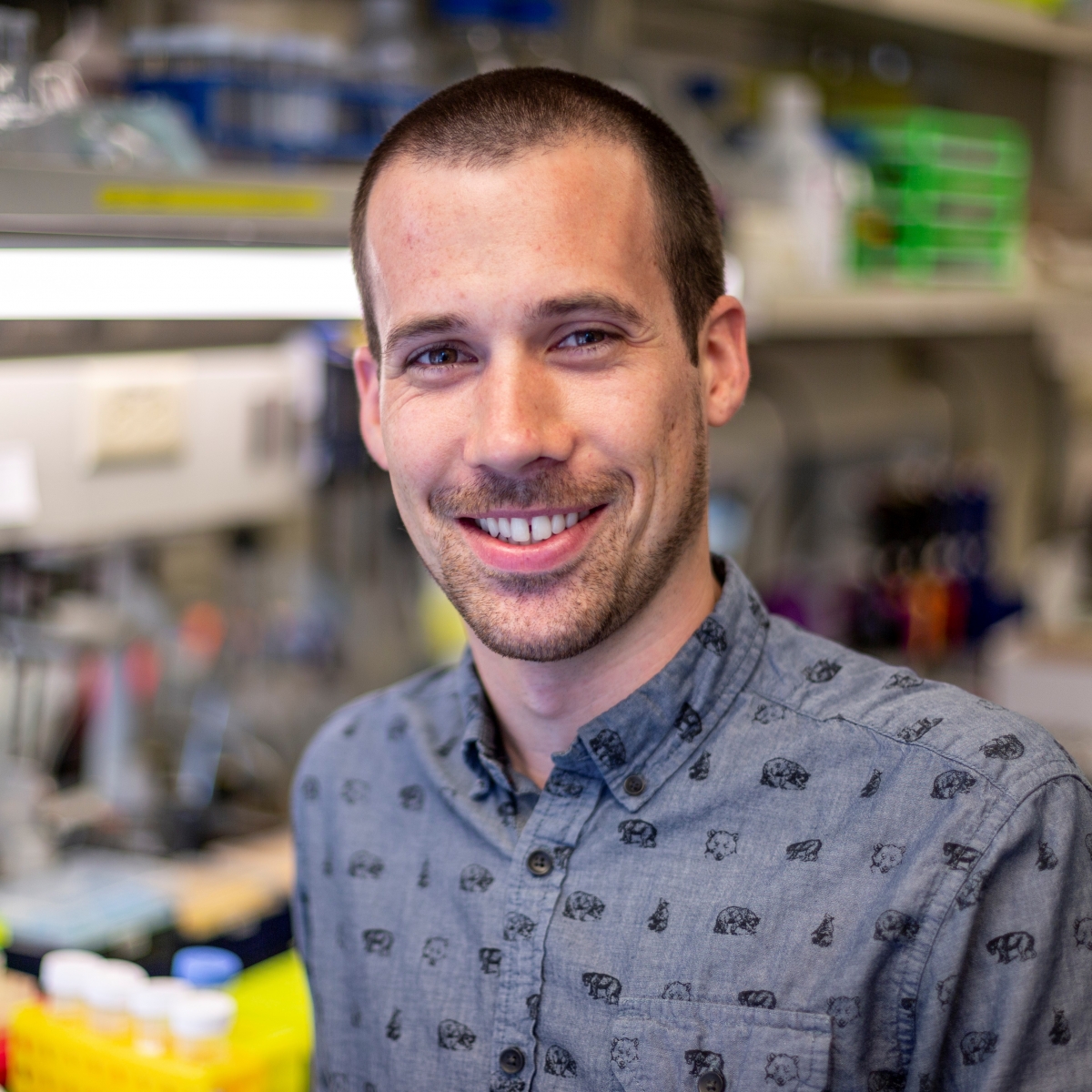 Tyler Starr, PhD, with his mentors Jesse D. Bloom, PhD, and Frederick Matsen, PhD, at Fred Hutchinson Cancer Research Center, Seattle, focuses on the process of how the immune system produces antibodies that specifically recognize and bind to antigens on pathogens and cancer cells. Dr. Starr is combining computational analyses of antibody sequences with experimental methods to test the effects of possible mutations on antibody function. This iterative process, similar to what the body does naturally, will help identify the best antibodies for an infection. The results of this research may lead to HIV therapeutics that reduce the incidence of AIDS-related cancers and improve the development of antibody-based cancer immunotherapies.
Tyler Starr, PhD, with his mentors Jesse D. Bloom, PhD, and Frederick Matsen, PhD, at Fred Hutchinson Cancer Research Center, Seattle, focuses on the process of how the immune system produces antibodies that specifically recognize and bind to antigens on pathogens and cancer cells. Dr. Starr is combining computational analyses of antibody sequences with experimental methods to test the effects of possible mutations on antibody function. This iterative process, similar to what the body does naturally, will help identify the best antibodies for an infection. The results of this research may lead to HIV therapeutics that reduce the incidence of AIDS-related cancers and improve the development of antibody-based cancer immunotherapies.
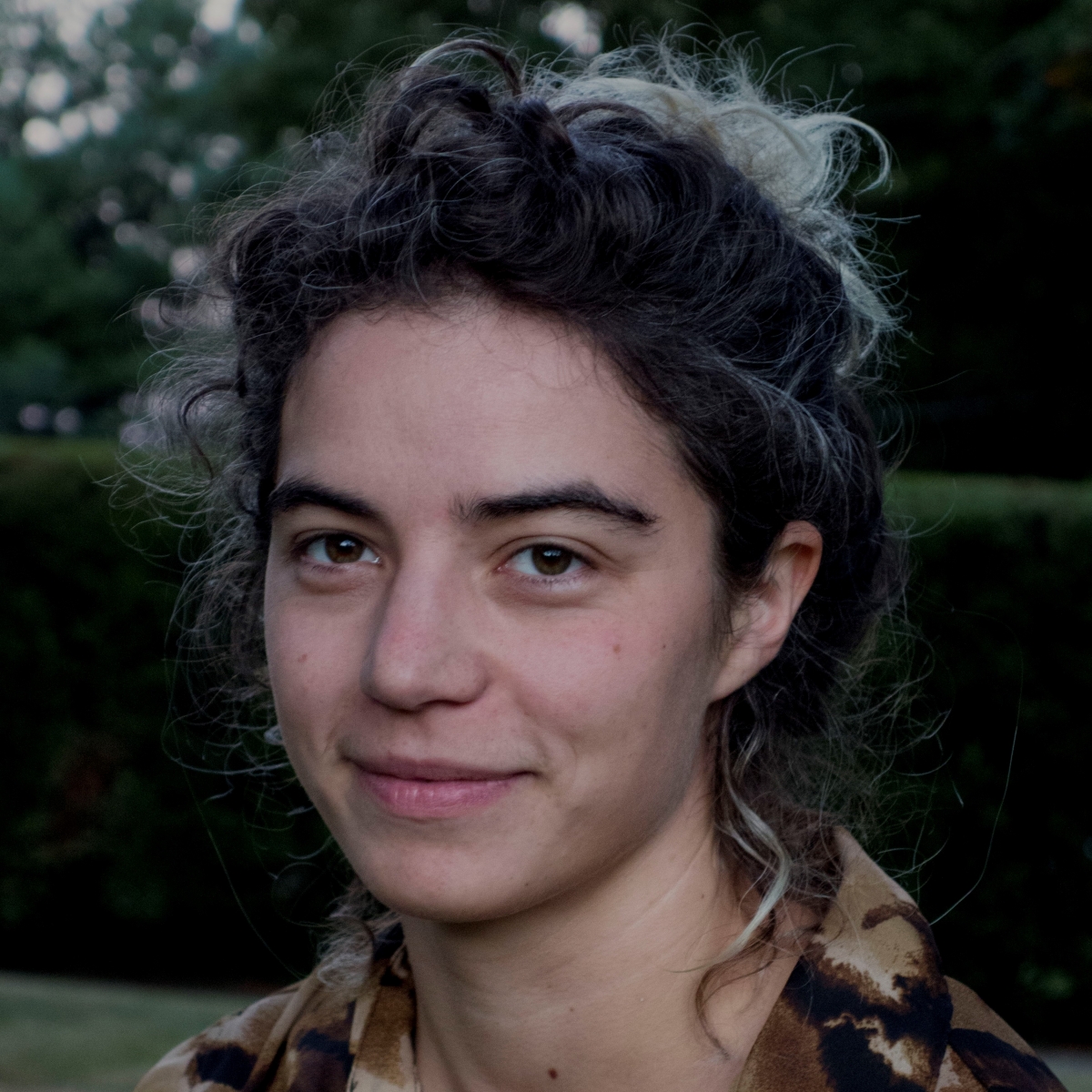 Sophia Tintori, PhD, with her sponsor Matt Rockman, PhD, at New York University, New York, is studying nematode worms from Chernobyl, Ukraine, to investigate the biological effects of continuous radiation exposure. While ionizing radiation is known to cause cancer, little is known about the levels that increase health risks or how animals adapt to high radiation environments. Dr. Tintori is comparing worms from Chernobyl, the area with the highest known levels of background radiation on the planet, to similar animals that have not been exposed. This research may shed light on specific challenges presented by radiation and possible biomolecular defenses.
Sophia Tintori, PhD, with her sponsor Matt Rockman, PhD, at New York University, New York, is studying nematode worms from Chernobyl, Ukraine, to investigate the biological effects of continuous radiation exposure. While ionizing radiation is known to cause cancer, little is known about the levels that increase health risks or how animals adapt to high radiation environments. Dr. Tintori is comparing worms from Chernobyl, the area with the highest known levels of background radiation on the planet, to similar animals that have not been exposed. This research may shed light on specific challenges presented by radiation and possible biomolecular defenses.
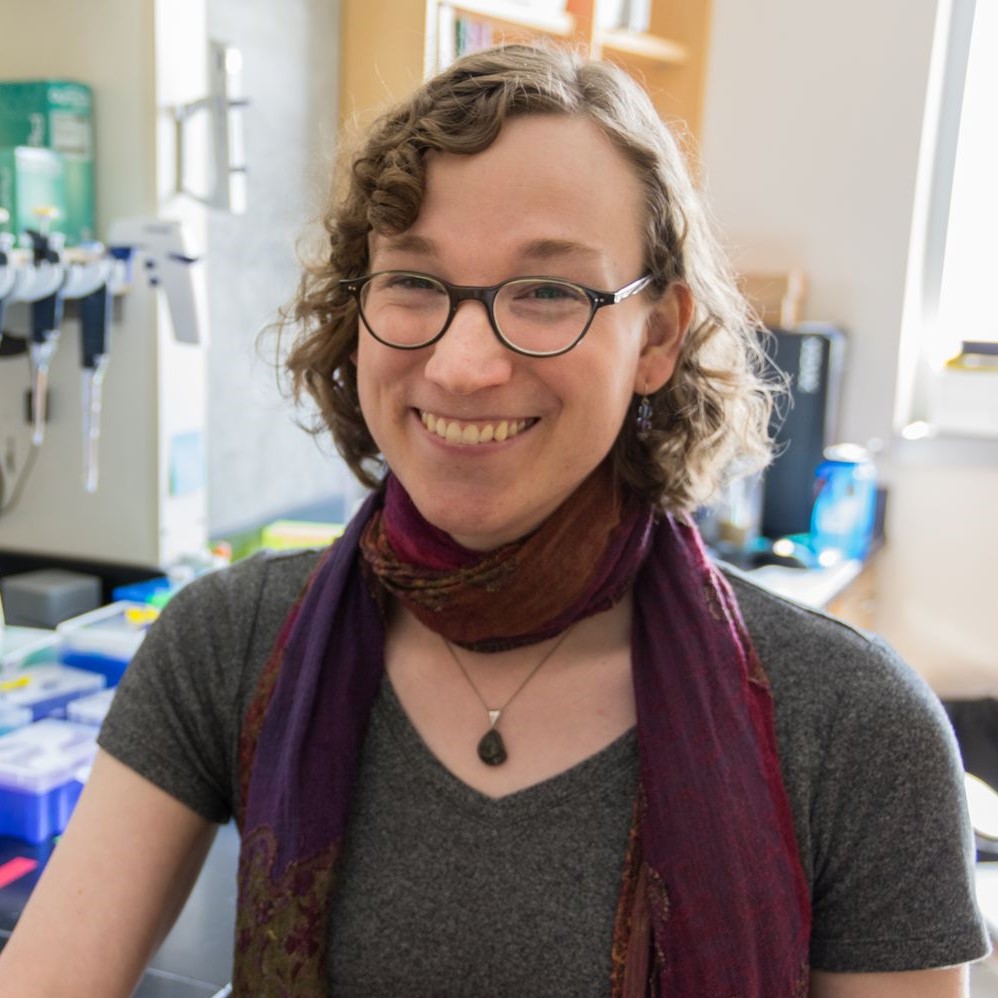 Lexy von Diezmann, PhD [Mark Foundation for Cancer Research Fellow], with her sponsors Ofer Rog, PhD, and Erik Jorgensen, PhD, at the University of Utah, Salt Lake City, studies how cells control the pathways used to repair DNA. Errors in DNA repair contribute to the development of many cancers, such as breast, ovarian, and pancreatic cancers. Dr. von Diezmann will explore the basic principles governing the DNA damage response by examining how a specific subtype of homologous repair enzymes functions in reproductive cells of the model organism C. elegans. Her project will provide mechanistic insight into how changes in the liquid-like organization of proteins at sites of DNA damage regulate repair, supporting the development of novel chemotherapies that modulate the DNA damage response.
Lexy von Diezmann, PhD [Mark Foundation for Cancer Research Fellow], with her sponsors Ofer Rog, PhD, and Erik Jorgensen, PhD, at the University of Utah, Salt Lake City, studies how cells control the pathways used to repair DNA. Errors in DNA repair contribute to the development of many cancers, such as breast, ovarian, and pancreatic cancers. Dr. von Diezmann will explore the basic principles governing the DNA damage response by examining how a specific subtype of homologous repair enzymes functions in reproductive cells of the model organism C. elegans. Her project will provide mechanistic insight into how changes in the liquid-like organization of proteins at sites of DNA damage regulate repair, supporting the development of novel chemotherapies that modulate the DNA damage response.
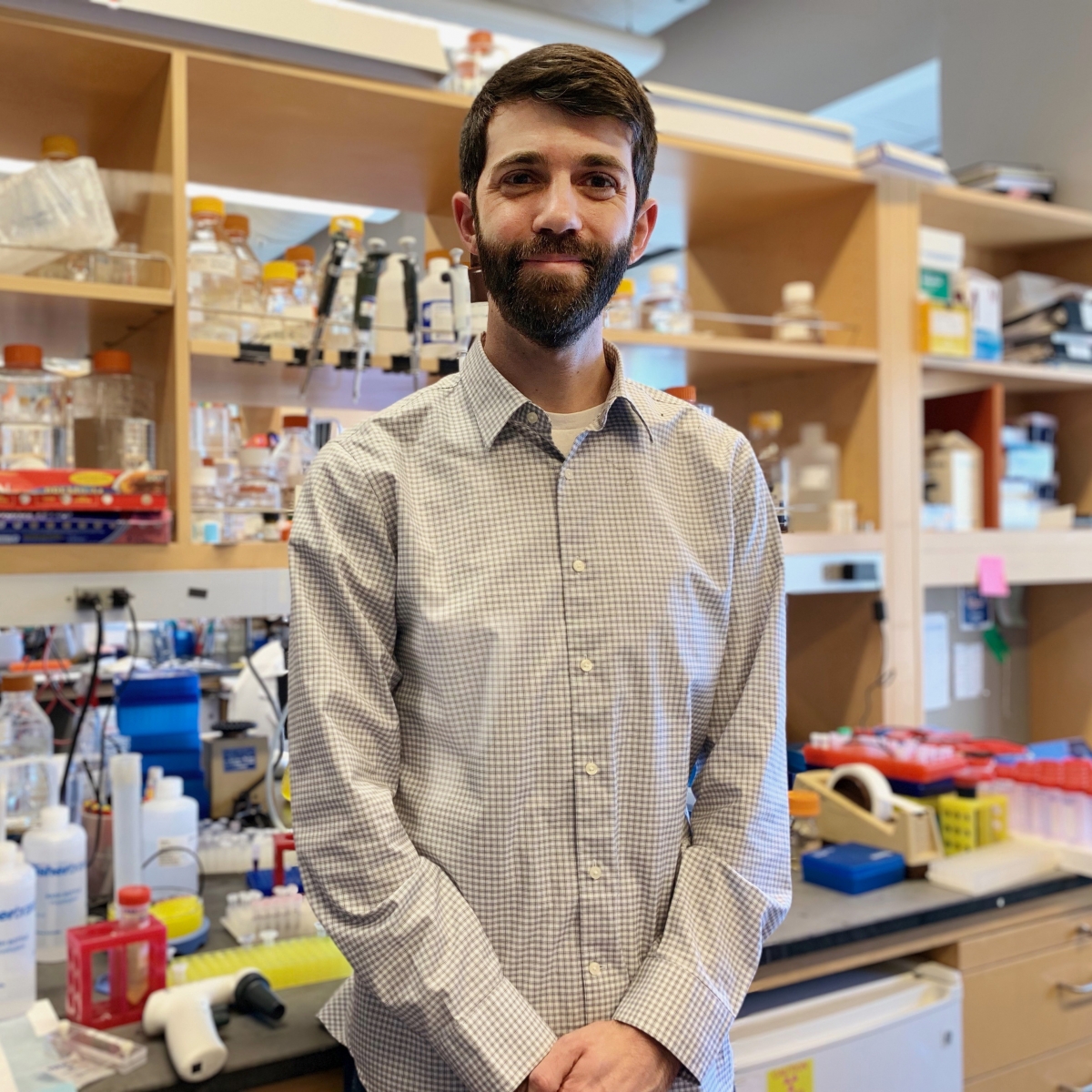 John C. Zinder, PhD [Lorraine W. Egan Fellow], with his sponsor Titia de Lange, PhD, at The Rockefeller University, New York, studies telomeres that cap the ends of chromosomes and the role they play in cancer development. Telomeres normally shorten every time a cell divides until they become so short that cell division stops. Dr. Zinder is focusing on shelterin, a multiprotein complex that binds to telomeres to protect them from being mistaken as damaged DNA. Mutations in the shelterin components are found in both cancer and premature aging diseases. By purifying this complex and visualizing it in atomic detail, he aims to gain fundamental insights into how telomeres are protected and how their length is controlled in normal cells and in cancer.
John C. Zinder, PhD [Lorraine W. Egan Fellow], with his sponsor Titia de Lange, PhD, at The Rockefeller University, New York, studies telomeres that cap the ends of chromosomes and the role they play in cancer development. Telomeres normally shorten every time a cell divides until they become so short that cell division stops. Dr. Zinder is focusing on shelterin, a multiprotein complex that binds to telomeres to protect them from being mistaken as damaged DNA. Mutations in the shelterin components are found in both cancer and premature aging diseases. By purifying this complex and visualizing it in atomic detail, he aims to gain fundamental insights into how telomeres are protected and how their length is controlled in normal cells and in cancer.
